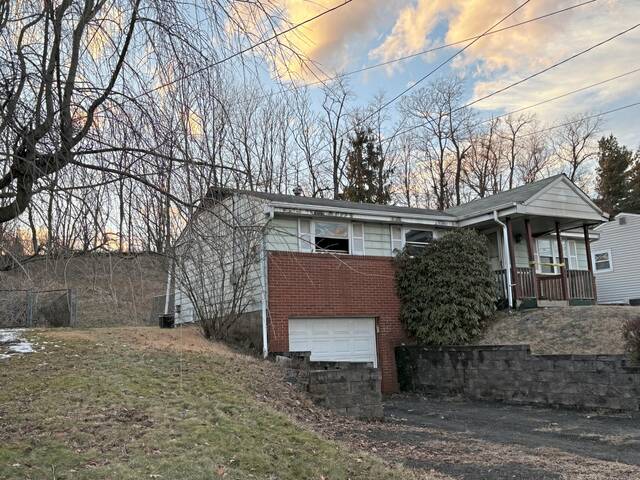The owner of the former power plant in Springdale cites eight reasons why an Allegheny County judge erred in granting a preliminary injunction to block an implosion of the boiler house at the site.
In a court filing Tuesday, lawyers representing Charah Solutions outlined their points against the December order from Judge John T. McVay Jr., saying he should not have granted the preliminary injunction that stopped an implosion of the boiler house at the former Cheswick Generating Station in Springdale.
Sixteen residents in September filed the injunction, claiming the June 2 implosion of two towering chimneys at the site caused harm to their properties, health and the community. They said the boiler house implosion would do the same.
After a trial, McVay in December ruled that the attorneys must develop a safety plan for the implosion and get it reviewed and approved by the state Department of Environmental Protection and the Allegheny County Health Department. They then would need to host a public meeting informing the community about the plan before McVay would consider ending the injunction.
Charah filed a notice of appeal to a higher court Jan. 9, which was followed by a notice of appeals by two other defendants, Controlled Demolition Inc. and Grant Mackay Co. McVay ordered the parties to submit a concise statement of errors, which is what Charah did Tuesday.
Charah contends McVay shouldn’t have allowed the plaintiffs “to collaterally attack the DEP’s and county health department’s permitting and clearance processes without requiring the plaintiffs to exhaust available administrative remedies.”
The plaintiffs should have challenged the blasting permit before the state’s Environmental Hearing Board and the county health department clearance before the department’s hearing officer, the filing said.
The judge’s order also usurps the authority granted to the DEP and county health department, by incorrectly imposing additional conditions on the boiler house implosion, according to the filing. Rather, the DEP regulates blasting and the county health department has the authority over asbestos abatement conducted in preparation for building demolitions in the county.
“As a result, the Trial Court erred as a matter of law by inserting itself into the administrative permitting processes of an executive agency, the DEP, and a county agency, the (county health department), in violation of the separation of powers,” the filing said.
The judge’s order also is based on an incorrect premise that the Springdale power plant demolition is the first in the county and that no precedent exists for the DEP and (county health department) for planning purposes, Charah said.
Rather, one of the plaintiff’s witnesses, Jon Pina, testified he was part of at least two plant demolitions in the county — McKeesport and Duquesne, both permitted by the county health department — and another chimney implosion in Hazelwood. The county health department also was involved in a demolition in 2018 on Neville Island at a stack implosion at a coke works facility.
“Indeed, those plant demolitions were permitted by the (county health department) and proceeded under the regulations that occupy the space, leaving only the defendants in this action subject to a heightened standard without any legal precedent for doing so.”
Charah also said the court abused its discretion and fashioned a remedy that exceeds the scope of permissible equitable relief. It points to language in the order where the plaintiffs will request the DEP to condition the blasting permit’s approval on meeting the terms of the safety plan, “plus any and all terms that the Plaintiffs believe necessary to safely implode the boiler house.”
That statement, Charah said, requires the companies to negotiate with the plaintiffs to determine “any and all terms” the residents believe are necessary to conduct blasting “that is already regulated and permitted by the Commonwealth, and further, it precludes properly permitted activity from moving forward unless and until the plaintiffs can be satisfied.”
Charah also believes the court erred by granting the preliminary injunction because the plaintiffs did not satisfy the six-part preliminary injunction standard.
“Notably, the Trial Court merely summarizes the potential personal injury and property damage that may have occurred as a result of the implosion of the chimneys. But a single boiler house — not two chimneys — is at issue in this injunction proceeding,” the filing said.
Evidence from the trial shows that the boiler house and the chimneys are two different structures, and the DEP determined the chimney implosion could not be duplicated with the boiler house because of those differences, the filing said.
And because the blasts are different, there is no evidence tying the potential property damage and dust exposures from the chimney implosion to those that would be experienced as a result of the boiler house implosion, the filing said.
The plaintiffs also failed to present evidence of irreparable harm that would result from the boiler house implosion, according to the filing. The filing notes the purported evidence of injuries that allegedly resulted from the chimney implosion is inadequate.
McVay also erred by using only a binder of exhibits to conclude that the plaintiffs “presented evidence that showed asbestos-containing products still may be present at the Power Plant.”
“Such a conclusion is remarkable in light of the fact that no witness ever testified as to what the photos were or even showed, let alone that they could depict asbestos in the boiler house,” the filing said. “Further, the conclusion is divorced from Mr. Pina’s testimony during which he admitted that he did not identify any asbestos-containing products during the site inspection.”
Charah attempted to stop the inclusion of the binder as evidence “because the plaintiffs sought to admit it in the final minutes of the proceeding, without authentication or any basis for their admissibility,” the filing said.
The filing also alleges that the plaintiffs’ bond in the case, $50,000, was inadequate and low.
Attorneys representing the residents did not immediately return a request for comment.








